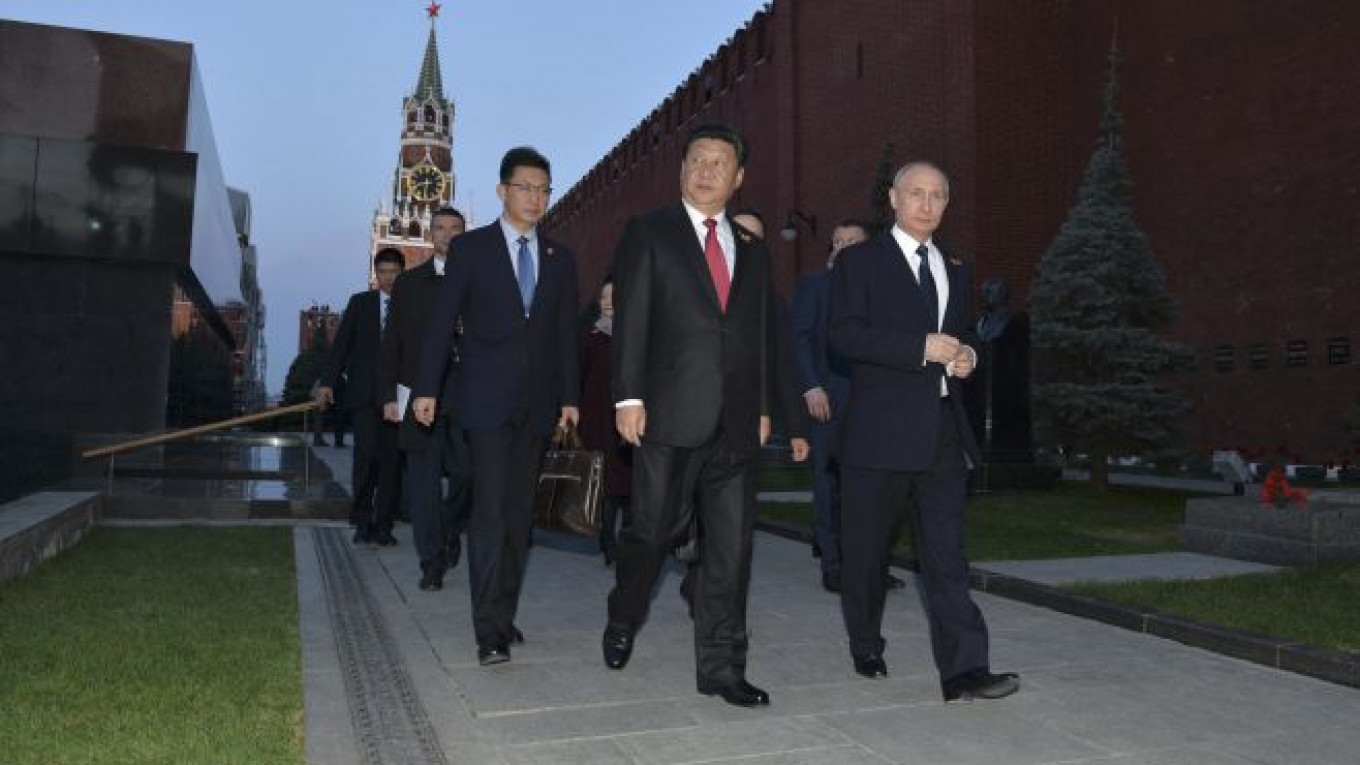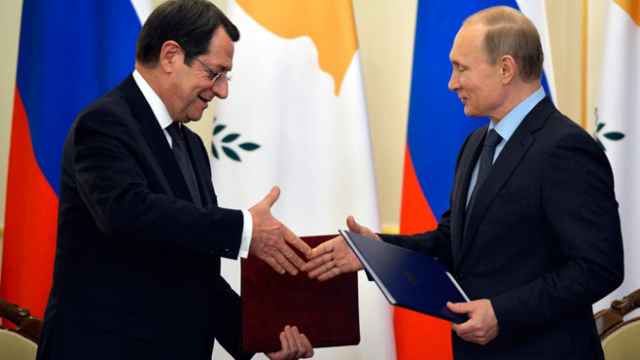Anyone reading the Western business press recently would be forgiven for thinking that Russia's global trading relations are irreversibly shifting East. Russian business ties with the West are severed, sanctioned and broken. Asian players are set to step in and fill the gaps left by retreating Western investment.
Certainly the recent spate of announcements supports such a proposition. This month Gazprom said that the China National Petroleum Corporation (CNPC) had started construction of the Chinese section of the pipeline to receive Russian gas, following the signing of a $400 billion gas deal last year to build the Power of Siberia pipeline.
In addition, Chinese e-commerce giant Alibaba has opened a new office in Russia to "further expand [its] business and to facilitate interaction with Russian government agencies."
To top it off, the two countries have also signed several economic deals, as well as a financing agreement for up to $25 billion for Russian companies from Chinese banks. "Today, China is our key strategic partner," Putin said, seated alongside his Chinese counterpart Xi Jinping, as the deals were signed.
Nonetheless, a high level of skepticism remains in many business circles, including Russian ones, as to how real or achievable this pivot East really is, at least in the short to medium term.
There is no getting away from the reality that Europe will remain Russia's largest overall trading partner for years to come. U.S. trade with Russia is much lower, but even so, the U.S. remains Russia's single largest foreign direct investor for infrastructure and power projects.
When speaking to bankers and professional advisers in Moscow, Beijing and Shanghai, there is a large element of wait-and-see about the realistic levels of cooperation that might emanate from Russian-Asian business cooperation over the next few years.
Setting political rhetoric aside, Russia's motivations are not hard to follow. Recent geopolitical events have brought into sharp focus the inherent risks in its current energy trading set-up. Europe (and particularly Germany) are fearful that Russia will turn off the gas, but likewise Russia is all too aware that Europe could turn off the flow of money.
Realistically, Russia is not looking to replace Europe as a trade partner and energy consumer, but to diversify its customer and supply base. In addition, sanctions are markedly squeezing the availability of financing and capital and the need to obtain this from alternative sources is real and pressing.
Political relations between Russia and the West are not easy, but big business is far more dispassionate and financially motivated. Russia remains an important market for many Western companies. In 2007-08 during the (previously) lowest point of post-Cold War international relations between Russia and Britain, bilateral trade between the two countries actually increased, so history suggests all may not be lost for business ties.
Moreover, we cannot forget that Russia does not just need capital investment, but also technical support, equipment and expertise in order to diversify its economy, enable newly promoted "import substitutions" and boost development — and, at the moment, this assistance will mostly be available from Western companies, subject as always to mutually acceptable terms as well as now, of course, the impact of sanctions.
This cooperation and expertise remains vital for economic development and diversification and is not so easily replaced by a pivot East — at least not immediately. Sanctions are seemingly set to stay in place for some time to come, but it may not all be Europe's loss and Asia's gain in relations with Russia.
Ian Ivory is a corporate finance specialist and partner at Goltsblat BLP.
A Message from The Moscow Times:
Dear readers,
We are facing unprecedented challenges. Russia's Prosecutor General's Office has designated The Moscow Times as an "undesirable" organization, criminalizing our work and putting our staff at risk of prosecution. This follows our earlier unjust labeling as a "foreign agent."
These actions are direct attempts to silence independent journalism in Russia. The authorities claim our work "discredits the decisions of the Russian leadership." We see things differently: we strive to provide accurate, unbiased reporting on Russia.
We, the journalists of The Moscow Times, refuse to be silenced. But to continue our work, we need your help.
Your support, no matter how small, makes a world of difference. If you can, please support us monthly starting from just $2. It's quick to set up, and every contribution makes a significant impact.
By supporting The Moscow Times, you're defending open, independent journalism in the face of repression. Thank you for standing with us.
Remind me later.






